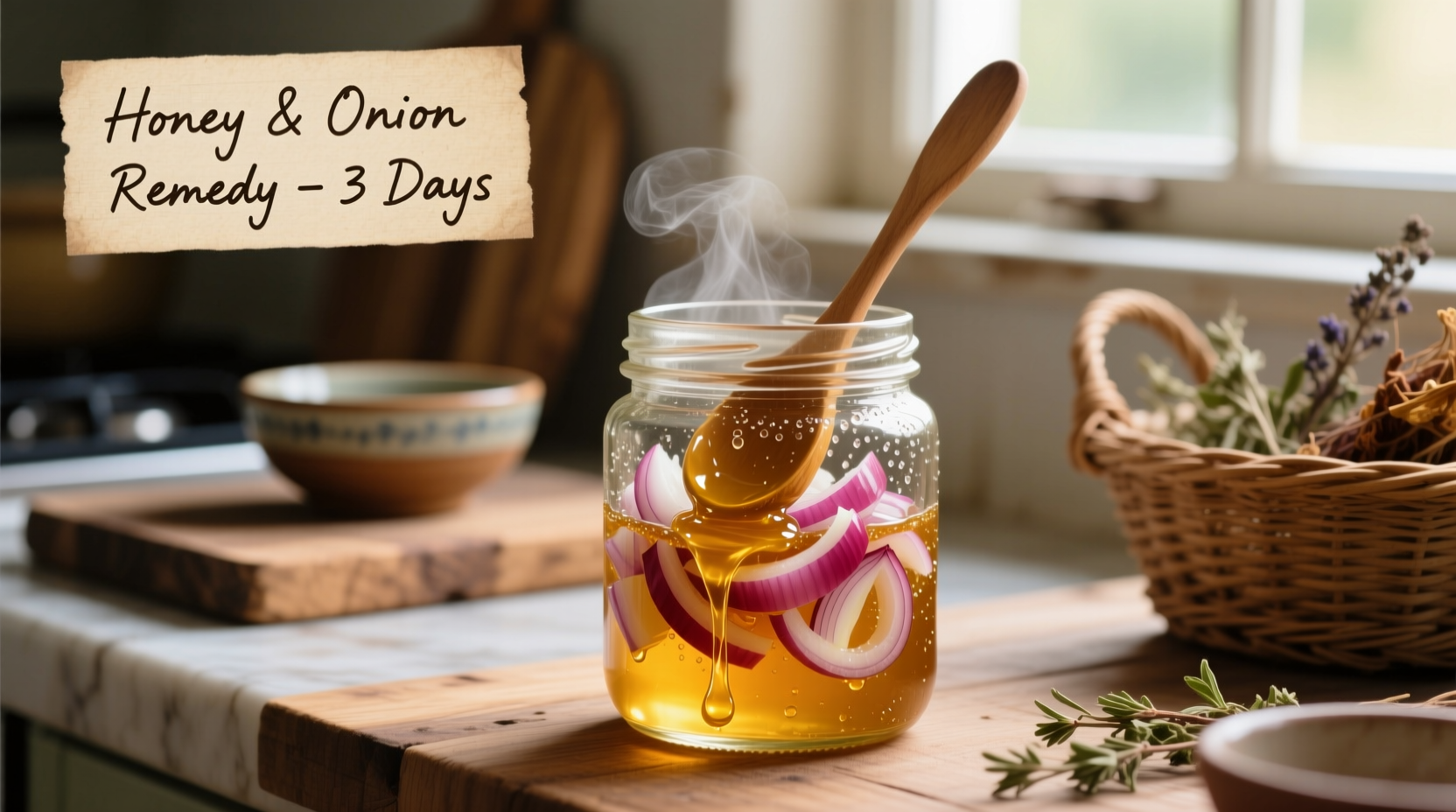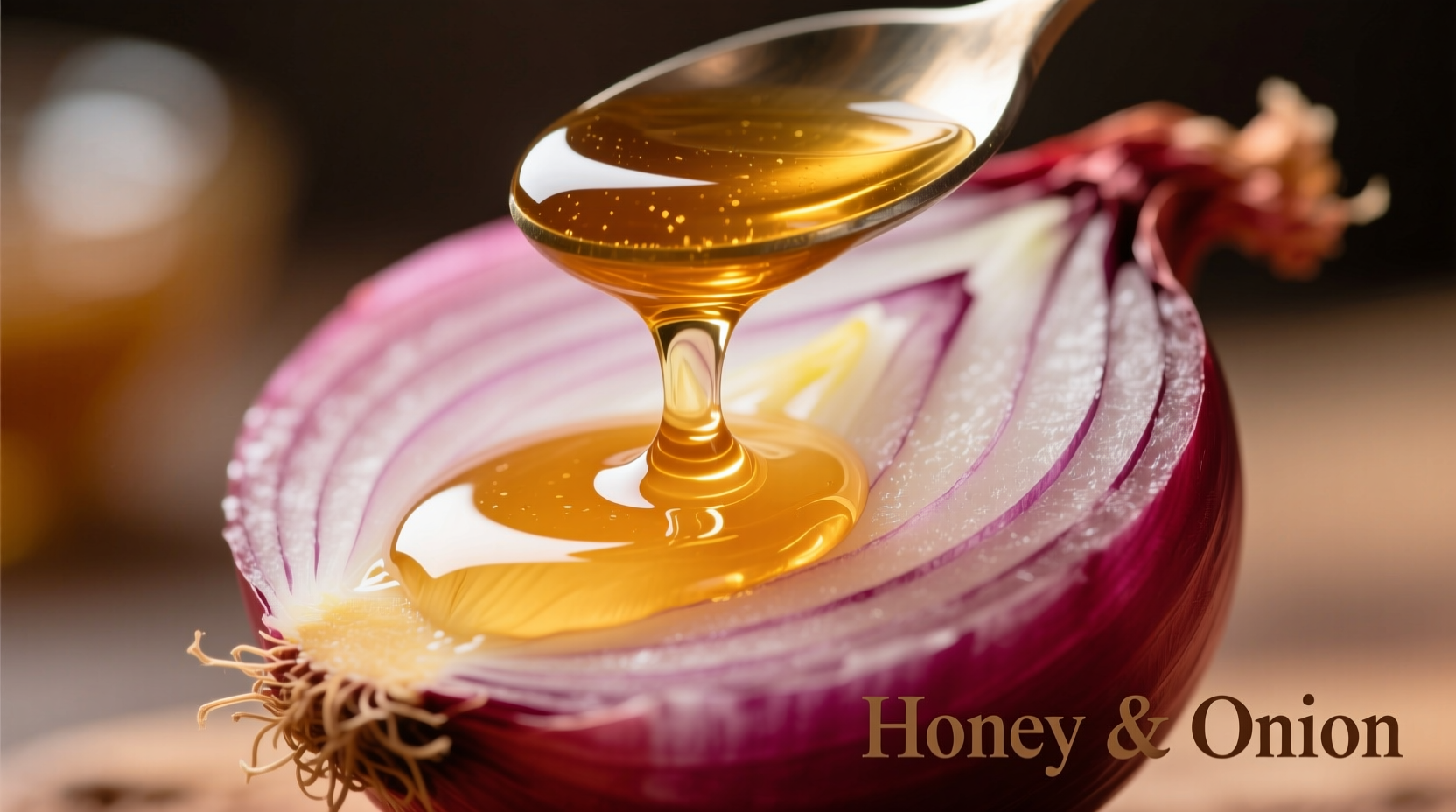The Science-Backed Truth About Honey and Onion Remedies
When coughs and colds strike, many turn to the time-tested combination of honey with onion. This natural remedy has been passed down through generations across multiple cultures, from European grandmothers to traditional healers in Asia and Africa. But what does modern science actually say about this popular home treatment?
Why This Remedy Endures: Historical Context and Modern Validation
Long before modern medicine, people relied on kitchen ingredients for relief. Ancient Egyptian medical texts mention honey for wound healing, while onion has been used medicinally since at least 5000 BCE. The combination emerged as a cough remedy in folk medicine traditions worldwide, particularly valued for its accessibility and gentle nature compared to harsher treatments.
Modern research validates part of this tradition. A Mayo Clinic study confirms honey effectively reduces nighttime coughing in children over age one, often outperforming over-the-counter cough medicines. The World Health Organization recognizes honey as a demulcent that coats irritated throat tissues, providing immediate soothing relief.

How to Prepare Honey with Onion: Three Effective Methods
While recipes vary by region, these three preparation methods deliver the most consistent results based on traditional practices and modern understanding of ingredient extraction:
1. The Overnight Infusion Method (Most Effective)
- Cut one medium yellow onion into thin slices
- Place slices in a glass jar and cover completely with raw honey
- Seal and let sit at room temperature for 8-12 hours
- Strain the liquid (now golden-amber in color) into a clean container
This method allows the honey to extract beneficial compounds from the onion through osmosis. The resulting syrup contains quercetin and other onion compounds that may provide additional anti-inflammatory benefits.
2. The Quick Simmer Method (For Immediate Use)
- Finely chop one small onion
- Add to 1 cup of water and simmer for 10 minutes
- Cool slightly, then stir in 2 tablespoons of honey
- Strain and drink while warm
3. The Direct Combination Method (Simplest Approach)
- Mix 1 tablespoon raw honey with 1 teaspoon freshly grated onion
- Let sit for 5 minutes before consuming
| Preparation Method | Best For | Active Time | Effectiveness Duration |
|---|---|---|---|
| Overnight Infusion | Nighttime cough relief | 5 minutes preparation | Up to 7 days refrigerated |
| Quick Simmer | Immediate sore throat relief | 15 minutes | Single use |
| Direct Combination | Quick symptom relief | 2 minutes | Single use |
When Honey with Onion Works Best (And When It Doesn't)
Understanding the specific scenarios where this remedy provides relief is crucial for safe and effective use:
Most Effective For:
- Nighttime coughs in children over 1 year old
- Dry, irritating coughs without productive mucus
- Sore throats caused by post-nasal drip
- Early stage cold symptoms
Not Recommended For:
- Children under 12 months (honey risk)
- Bacterial infections like strep throat
- Productive coughs where mucus expulsion is needed
- Severe symptoms lasting more than 10 days
The Centers for Disease Control emphasizes that while honey can soothe symptoms, it doesn't treat the underlying viral infection causing most coughs and colds. This remedy works best as part of comprehensive care including rest, hydration, and symptom monitoring.
What Research Actually Says About Onion's Role
While honey's benefits are well-documented, onion's contribution to this remedy deserves clarification. Onions contain quercetin, a flavonoid with potential anti-inflammatory properties. A 2016 review in Nutrients suggests quercetin may help reduce inflammation in respiratory conditions, though human studies specifically on onion syrup are limited.
Traditional preparation methods likely enhance onion's bioactive compounds through the honey extraction process. The acidic environment created when onion mixes with honey may increase the availability of certain beneficial compounds, though more research is needed to confirm this mechanism.
Safety First: Important Considerations
Before trying honey with onion, consider these critical safety points:
- Never give honey to infants under 1 year due to botulism risk
- Consult your doctor if symptoms persist beyond 10 days
- Discontinue use if experiencing allergic reactions
- People with diabetes should monitor honey intake
- Don't use as replacement for prescribed medications
The American Academy of Pediatrics specifically recommends honey as a first-line treatment for cough in children over age one, noting it's safer than many over-the-counter cough medicines which carry risks of side effects.
Maximizing Effectiveness: Pro Tips
Based on traditional knowledge and modern understanding:
- Use raw, unprocessed honey for maximum enzyme activity
- Yellow onions contain higher quercetin levels than sweet varieties
- Take 1-2 teaspoons before bedtime for nighttime cough relief
- Store prepared syrup in glass (not plastic) containers
- Combine with adequate hydration for best results
When to Seek Medical Care
Natural remedies have limits. Consult a healthcare provider if you experience:
- Fever over 102°F (38.9°C) lasting more than 3 days
- Difficulty breathing or wheezing
- Cough lasting longer than 2 weeks
- Blood in mucus
- Severe sore throat with difficulty swallowing
Final Thoughts on This Time-Tested Remedy
Honey with onion represents the wisdom of traditional medicine meeting modern validation. While not a cure-all, it offers a safe, accessible option for symptom relief when used appropriately. The strongest evidence supports honey's role in soothing coughs, particularly in children over one year old, while onion may provide complementary benefits through its bioactive compounds.











 浙公网安备
33010002000092号
浙公网安备
33010002000092号 浙B2-20120091-4
浙B2-20120091-4